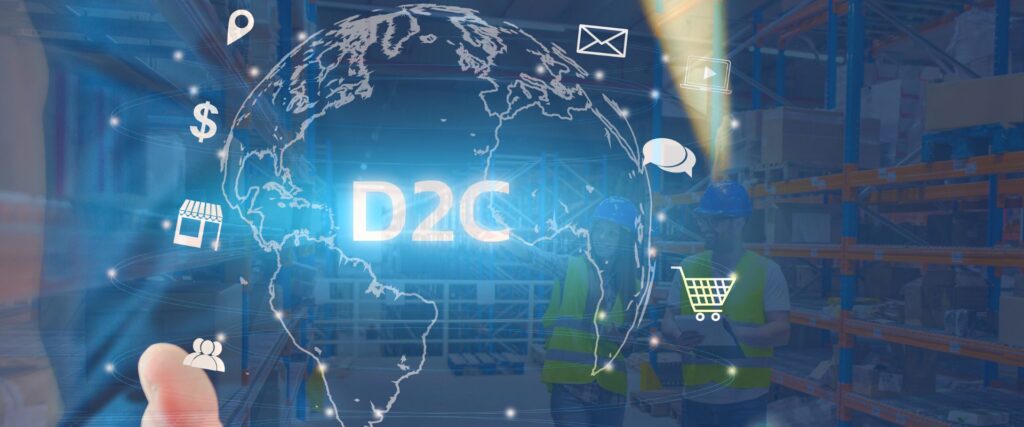Building a Scalable Logistics Infrastructure for D2C Companies in the Digital Age

In the era of direct-to-consumer (D2C) commerce, logistics play a crucial role in the success of any D2C business. From ensuring timely deliveries to providing a seamless customer experience, efficient logistics can make all the difference for any business. As D2C companies scale, they often face challenges in managing their logistics operations. This is where technology comes into the play.
According to a report by KPMG, companies with strong and robust logistics and supply chain infrastructure can reduce their delivery time by at least 50%. By leveraging technology, D2C companies can streamline their logistics infrastructure, enhance customer satisfaction, and ultimately achieve their business goals.
In this article, we have attempted to walk you through the role of technology in building a scalable logistics infrastructure for D2C companies, real-time tracking and transparency impact, and best practices to maximise efficiency and customer satisfaction. Get ready to dive into the future of logistics for D2C companies!
Before diving into the ocean of possibilities and advancements, let’s take a quick look at existing challenges for D2C companies in logistics.
The Challenges of Scaling Logistics for D2C Companies
Inventory management : One of the biggest challenges D2C companies face as they scale is managing inventory levels. Poor inventory management can lead to stock-outs, excess inventory as well as a negative impact on customer satisfaction.
Last-mile Delivery : Another challenge D2C companies face as they scale is coordinating with multiple carriers to reach every corner of the target market. With various carriers and delivery options, it can be difficult for D2C companies to ensure that deliveries are made promptly and cost-effectively.
Customer satisfaction : As e-commerce becomes more competitive, customers increasingly demand faster, smoother and flexible delivery services. D2C companies must be able to meet these demands to remain competitive and maintain customer satisfaction.
Reverse logistics : Finally, D2C companies must also deal with the challenges of managing returns and reverse logistics. With a growing number of customers, managing returns can become complex and time-consuming, leading to increased operational costs and reduced efficiency.
Building a scalable logistics infrastructure for D2C Companies
Now that we understand the logistics and supply chain challenges for D2C Companies, having a scalable logistics infrastructure is a must. A scalable logistics infrastructure enables D2C companies to grow their operations and handle increased volumes of deliveries while maintaining operational efficiency and customer satisfaction. These, combined with the challenges mentioned above, can be addressed efficiently using technology with custom logistics software.
One of the key areas where technology can help D2C companies is managing inventory levels. Predictive analytics and other advanced technologies can also help D2C companies accurately predict demand and manage their inventory levels more effectively. By leveraging technology, D2C companies can reduce the risk of stock-outs, minimise waste, and enhance customer satisfaction.
Another area where technology can play a critical role is the coordination of deliveries. With multiple carriers and delivery options, it can be difficult for D2C companies to ensure that deliveries are made promptly and cost-effectively. By leveraging technology, D2C companies can streamline logistics operations, improve delivery times, and enhance the customer experience.
A study by PwC concludes that 40% of consumers abandon their online shopping carts due to unreliable delivery times. Technology can also help D2C companies overcome this challenge with features to track deliveries across multiple carriers more effectively. With real-time tracking and delivery status updates, D2C companies can provide their customers with more accurate delivery information, reducing the risk of customer complaints and enhancing customer satisfaction.
Process Automation and technology also help D2C companies to reduce transportation costs. Predictive analysis platforms and other AI-enabled tools can optimise delivery routes and reduce the distances; this allows D2C companies to reduce shipping overheads on every order.
In conclusion, technology is critical in building a scalable logistics infrastructure for D2C companies. By leveraging technology to manage inventory levels, coordinate deliveries, reduce transportation costs, and enhance the customer experience, D2C companies can overcome the challenges of scaling logistics and succeed in the e-commerce marketplace.
If you are into E-commerce or Direct commerce, get in touch with us. Our team of experts will be happy to consult you about how you can leverage technology to address your business-specific challenges in logistics and other areas.
